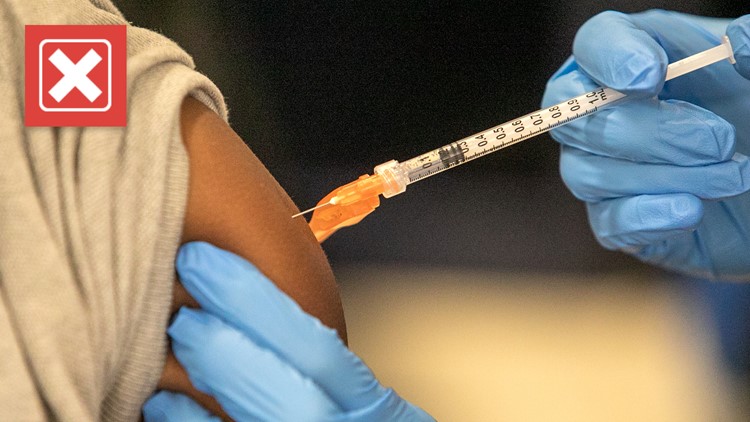Asylum seekers do not receive vaccinations against diseases like polio, smallpox or chickenpox when they arrive at the U.S. border.


Many babies, toddlers and teens in the United States receive a series of routine vaccinations to protect them against certain diseases, including polio, chickenpox, measles and whooping cough. But these vaccines are not always accessible in developing countries.
After Title 42's end, and rising concerns of an influx of migrants crossing into the U.S., VERIFY is fielding many questions. VERIFY viewer Cheryl asked our team if people seeking asylum in the U.S. are required to receive routine vaccinations when they arrive at the border.
THE QUESTION
Are people seeking asylum in the U.S. required to receive routine vaccinations at the border?
THE SOURCES
THE ANSWER
![]()
No, people seeking asylum in the U.S. are not required to receive routine vaccinations at the border.
WHAT WE FOUND
People seeking asylum in the U.S. are not required to receive routine vaccinations or show proof of vaccination history when they arrive at the border, according to the CDC’s Division of Global Migration and Quarantine.
They are, however, required by law to get vaccinated in order to become lawful permanent residents of the U.S. Lawful permanent residents, also known as “green card” holders, are non-citizens who are lawfully authorized to live permanently within the U.S.
“Asylees [asylum seekers] are not required to have any vaccinations to be granted asylum by the United States,” a CDC spokesperson told VERIFY. “However, asylees must comply with the vaccination requirements if they apply for adjustment of status to lawful permanent resident.”
When asylum seekers arrive at the U.S. border they are typically given a medical screening to check for any immediate health concerns, but routine vaccinations are not offered by the federal government at the border except under certain circumstances. A measles vaccine, for example, may be required if a person comes from a refugee camp where there has been a measles outbreak.
Asylum seekers may be offered routine vaccines by state or local governments or by their sponsors once settled in the U.S., but they are still not required to receive them unless they want to become lawful permanent residents. Minor children applying for asylum, however, may be required to get vaccinated in order to attend public school.
U.S. Citizenship and Immigration Services (USCIS) and the U.S. Department of State both say that a person who seeks to adjust their status to that of a lawful permanent resident must receive vaccinations to prevent the following diseases:
- COVID-19
- Hepatitis A
- Hepatitis B
- Influenza
- Influenza type b (Hib)
- Measles
- Meningococcal
- Mumps
- Pneumococcal
- Pertussis
- Polio
- Rotavirus
- Rubella
- Tetanus and diphtheria toxoids
- Varicella
- Any other vaccine-preventable diseases recommended by the Advisory Committee for Immunization Practices (ACIP).
The VERIFY team works to separate fact from fiction so that you can understand what is true and false. Please consider subscribing to our daily newsletter, text alerts and our YouTube channel. You can also follow us on Snapchat, Twitter, Instagram, Facebook and TikTok. Learn More »
Follow Us
Want something VERIFIED?
Text: 202-410-8808
.png)









 English (US) ·
English (US) ·